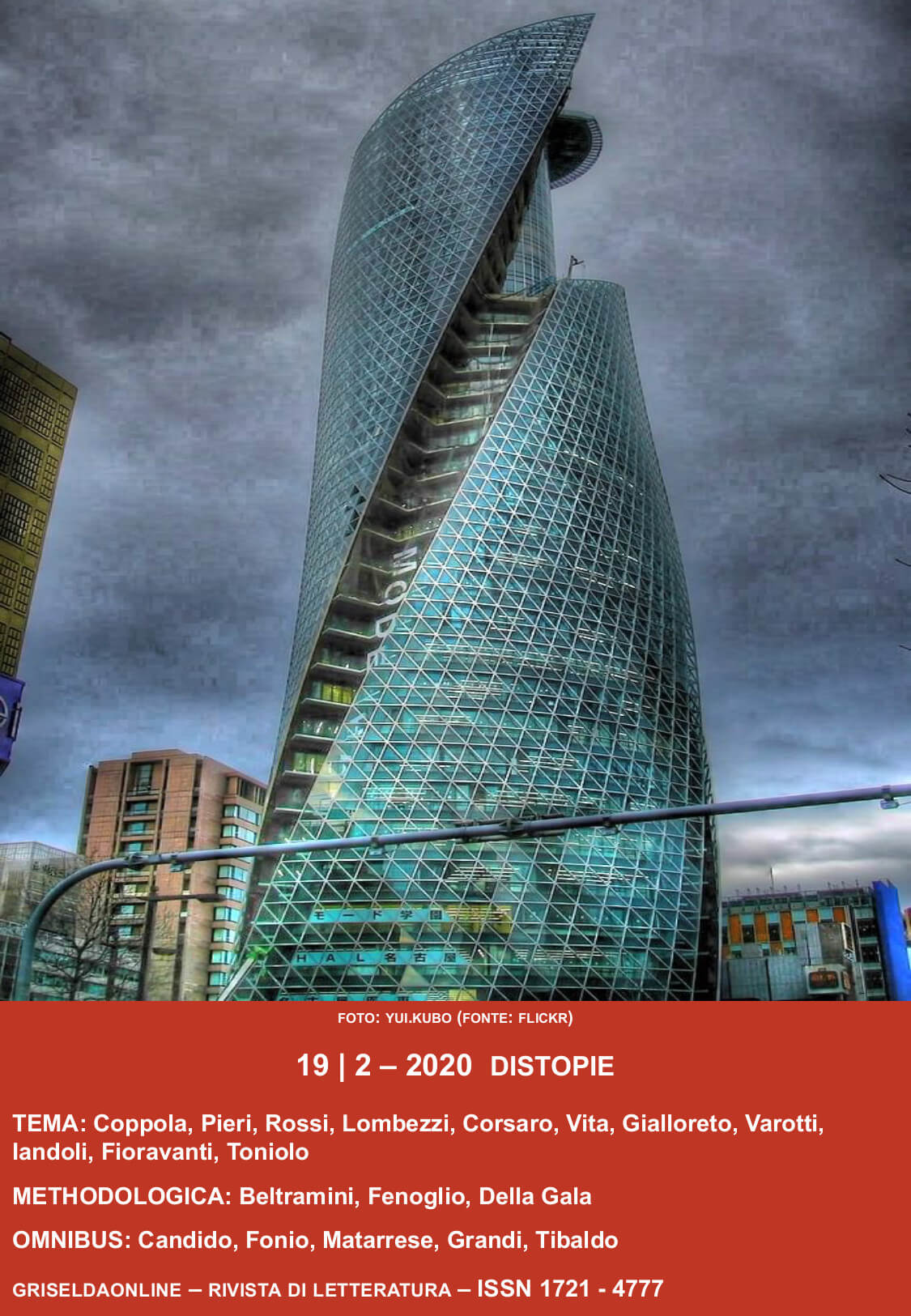Distopia etica e distopia biologica
Appunti su Wells, Huxley e altra narrativa
DOI:
https://doi.org/10.6092/issn.1721-4777/11537Keywords:
distopia, utopia, narrativaAbstract
The contribution offers targeted readings of texts by Herbert G. Wells (The Time Machine, The Island of Doctor Moreau) and also of twentieth-century texts such as Ape and Essence by Aldouls Huxley and The irritable planet by Paolo Volponi. The subject of the study is the relationship, significant from the point of view of the history of fantastic literature, between the biological and scientific instance and the ethical one. If in Wells the political and social message stops in the face of insurmountable aporias and instead proceeds towards a biological idea of human evolution (following Darwin and Thomas Huxley), the twentieth-century dystopian literature of the post-bomb depletes of actual curiosity scientific investigation and turns towards an ethical reflection which again has its center on man and his commitments towards the future.
Downloads
Published
How to Cite
Issue
Section
License
Copyright (c) 2021 Antonio Corsaro

This work is licensed under a Creative Commons Attribution-ShareAlike 4.0 International License.





